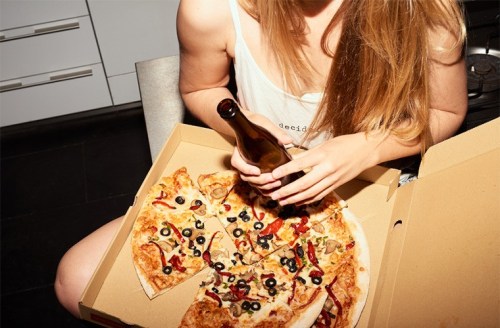Our editors independently select these products. Making a purchase through our links may earn Well+Good a commission
To call Whole30 a buzzy Paleo eating plan would be a serious understatement: The program, which co-founder Melissa Hartwig summarizes as “a reset for your health, your habits, and your relationship with food,” is practically a movement, garnering nearly half a million likes on Facebook and more than two million #whole30-tagged photos on Instagram.
That’s in part because the month spent abiding by Whole30’s strict rules—in addition to fairly typical cleanse no-nos, like sugar, alcohol, and dairy, followers must cut out pseudo-grains like quinoa, legumes like chickpeas and peanut butter, and even healthy indulgences using approved ingredients (which means that—gasp!—avocado mousse is not an option)—can be so powerful. (Spoiler alert: Expect it to change everything from your energy level to sleep and digestion—all for the better.)
But the plan was never intended to be adopted as a full-time meal-eating guideline—so what happens after the 30 days are up? How do you apply the learnings of your month-long nutritional fact-finding mission in a sustainable, long-term way and make it a lifestyle? That’s the question that Hartwig seeks to answer in her latest book, Food Freedom Forever.
“It’s a scientific experiment that helps you create the perfect diet for you,” Hartwig says of Whole30. In other words, think of it as the kick-start to an elimination diet that will allow you to reintroduce ousted items, one at a time, and all while evaluating what you actually want and need when you sit down to eat.
Ready for the next phase of your Whole30 journey? Here, Hartwig explains what happens after you survive the first 30 days.
Keep reading to learn how to turn your Whole30 body-reset lessons into a lifetime of healthy habits.

Be strategic about when you eat your “problem foods”
Giving up something during your Whole30 challenge doesn’t mean it has to be gone from your life for good—Hartwig says you just have to be mindful about when you add it back in. If you gave up sugar, for example, and found it to be life-changing, you can still savor a cupcake on a special occasion. But mindlessly munching on caramel popcorn while watching Netflix? That’s a no-go.
“This will keep you feeling as awesome as you want to feel because it’s based on what you learned during the reset,” Hartwig says. So if giving up dairy completely cured your bloat problem, going back to a life of eating cheese everyday is ignoring the new insight you have. But throwing some on your cauliflower pizza every now and then? Totally fine.

Savor your meals
As Food Freedom Forever deeply explores, eating and emotions/feelings are intricately tied together—even if that feeling is boredom. To make meal time more about nourishing your body and really enjoying everything you’re eating, Hartwig says people should ask one simple question before reaching into the fridge: Do I really want this? Being mindful of that question can undo all the messiness that comes with emotional eating. “Am I bored, stressed, or hungry? Do I really want it? It’s not about always saying no. It’s about enjoying the food you choose to eat,” Hartwig explains.
She says this even works in situations like eating out with friends or at work. “Be mindful about the practice of eating,” she says. “You can take 10 minutes and clear everything away from your desk and have a meal—even if you’re also eating while reading a book or having a conversation with a friend at the same time.”

Don’t freak out when you slip up
Okay, but what happens when you go on vacation or head home for the holidays and everything just goes to crap? Then what? Hartwig says you shouldn’t stress out about it—you already know how to get back on track. For some, that may mean doing Whole30 all over again. For others who feel like they already have a good grasp of what works for their body, that means a shorter elimination period.
The key, again, is listening to your body and paying attention to how certain affect you. In the end, your meal plan shouldn’t feel restrictive; after all, being rid of digestion issues, annoying skin problems, bad sleep, and everything else that is not-so-ideal will make you feel, well, free.
Watch our Facebook Live video with Hartwig below to see our full convo:
Want to try the ultimate anti-inflammatory meal? Here’s exactly what to put on your plate (and what to leave off). Plus, find out why even dairy lovers are becoming obsessed with vegan cheese.
Sign Up for Our Daily Newsletter
Get all the latest in wellness, trends, food, fitness, beauty, and more delivered right to your inbox.
Got it, you've been added to our email list.










